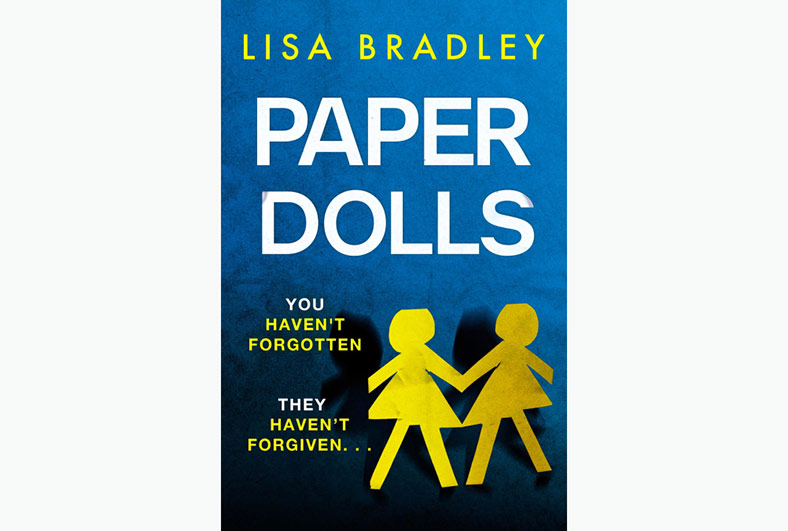Journalist as Author: Lisa Bradley – Paper Dolls

University of Sheffield’s Director of Undergraduate Studies for the Department of Journalism Lisa Bradley has experience across national and regional press and knows first-hand the pressures of nailing down the big news stories of the day and making the difficult call of what goes into the paper’s pages.
Her debut novel Paper Dolls explores the ripple effects of the decisions journalists make every day while pushing the news cycle forward. Read on for more about the book, what inspired Lisa to write it and the challenges this year’s journalism graduates will be facing when starting their own careers in the media.
Can you introduce Paper Dolls in a couple of sentences?
Sixteen years ago, on Leah’s first day running the newsdesk, two young girls go missing – one is white and middle class and police fear she has been abducted. The other is black, from a council flat and an habitual runaway. Leah gives one coverage, but not the other – a call that comes back to haunt her years later. After all, the first girl was found the next day. The second was never heard from again. Now someone is stalking Leah, sending her dolls cut from the newspapers she used to edit, determined to make her pay.
Could you tell us about how you came to write the book?
It was actually after a Madeleine McCann documentary. I couldn’t stop thinking about all the other kids, girls, women, boys, men – all those who don’t fit the front-page profile and how their stories are never told. I did a bit of research and it turned out that Missing White Woman Syndrome is a thing. I really wanted to look at the calls we make as journalists, the tiny ones, the decisions of what makes the newslist – and the far-reaching consequences they can have without us knowing.
Are you working on another book, or do you have other projects under way?
Yes, it’s due today! I’m just filling in a plot hole at the moment and then it’s done. I was super lucky to get a two-book deal with Quercus and The Lesson is slated for publication in Spring 2021.
Can you offer any advice to other journalists thinking about writing a book like Paper Dolls?
I always thought creative writing, or writing fiction I should say, would be so much harder than news. But the principles are all the same. Less is more. Don’t info dump. Strip out the adverbs, less emotion, more impact. Keep it pacey, and don’t be self-indulgent! Think of it like writing a 90k grisly crime news story.
What books are you reading right now, or about to pick up?
I’ve just finished Invisible Girl by Lisa Jewell and about to start The Midnight Library by Matt Haigh. I have high hopes!
As a former journalist, are there any examples from that part of your career that you’re particularly proud of?
As thrilling as it was when I was freelancing for the nationals – and signing up people exclusively to me for the big stories – it’s actually my time in the regional press I am most proud of. The campaigns I helped run to improve literacy, to get a notorious rundown railway station revamped after a string of rapes, to raising half a million for the hospital – is really where I feel journalism makes such a massive difference. And you can see the good you are doing first-hand. Makes a nice change when most people hate the press!
Are you available for freelance commissions, speaker opportunities or other roles?
Absolutely. As well as being Director of Undergraduate Studies for the Department of Journalism at the University of Sheffield, I still freelance when I come across a story I just have to tell.
What do you think are the main challenges your students will be facing when starting their own careers in journalism?
When I started, the career route was very much local paper to evening paper, newsdesk to regional daily, and then many would aim for the nationals. It’s just not like that at all now. That career path is now so limited that we often find editors coming to us to poach our best students, rather than students being one of 100 applicants, working for free to make a good impression. There’s no much thing as a print journalist; you have to be a ‘journobot’ able to do everything, so actually the career opportunities those transferable skills bring are endless. We have fewer going into papers, but more than ever in graduate journalism-related jobs.
Paper Dolls (06.08.2020, Quercus) is available here. Follow Lisa Bradley on Twitter @lisabjourno.